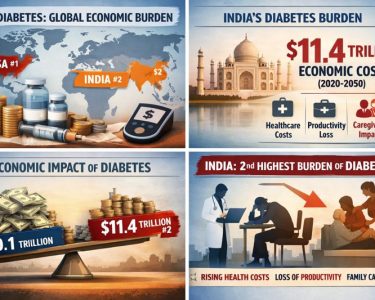India’s annual retail inflation slowed sharply to 2.10% in June, marking its lowest level since January 2019, as food prices continued to decline. This figure is below the Reserve Bank of India’s (RBI) lower tolerance limit and could pave the way for potential interest rate cuts.
According to official data released by the government’s statistical department, the June inflation rate was well below economists’ expectations. A recent Reuters poll had predicted inflation at 2.5%, while the May 2025 rate stood at 2.82%.
Food Prices Lead the Decline
The sharp decline in food inflation was a major factor behind the drop.
-
Food items, which make up nearly half of the Consumer Price Index (CPI), recorded -1.06% inflation in June.
-
In contrast, food inflation had increased by 0.99% in May.
-
Vegetable prices fell by 19% year-on-year, a steeper drop compared to 13.7% in May.
Analysts attribute this trend to good rainfall, which boosted agricultural production and helped stabilize food supply across the country.
RBI’s Inflation Band and Policy Outlook
The RBI has a mandated inflation range of 2% to 6%. It must ensure inflation remains within this band for at least three consecutive quarters. With current inflation touching the lower end, pressure could mount on the RBI to consider easing interest rates in upcoming monetary policy meetings.
What This Means for the Economy
Lower inflation generally boosts consumer spending by increasing purchasing power, especially in essential categories like food. Additionally, subdued inflation may encourage business investment, particularly in retail, agriculture, and manufacturing sectors, all of which benefit from stable input costs.







